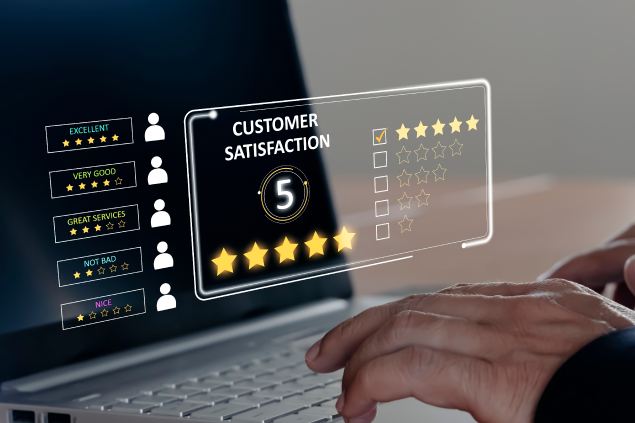The right legal technology can make a world of difference for the productivity and efficiency of your law office. Whether you are looking to improve your invoicing processes or make document review less tedious, tech upgrades can take your practice from existing to thriving.
But just as legal technology can add to your firm, it can also be the source of stress. That’s why you must take the time to consider your legal tech decisions. Weigh the pros and cons of your options before choosing a technology vendor, so you can foster the best possible outcome for your legal practice.
If you’re a law firm leader seeking to implement new legal technology, consider these six helpful lessons when examining your options:
Lesson #1: Examine What You Need
Before searching for new legal technology, you need to fully understand what you want and need within your law firm. Think about where the pain points exist in your office. Are your lawyers failing to accurately track their time? Maybe client calls and emails often go unanswered. How can available technologies help you solve these issues?
By identifying the specific problem first, you can make better decisions about the best legal technology to meet your needs. To adequately evaluate vendors and the services they provide, you need to understand the overall goals of your firm.
This preparation also helps you better determine what you must-have in your legal technology, compared to what you would just like to have. These two categories can make a significant difference in tech prices, so make these determinations to stay within budget.
Lesson #2: Look for a Partner
The relationship between your law firm and its legal technology vendors extends well beyond the initial purchase. It also involves training and implementation, as well as ongoing maintenance and repair issues. You and your staff will rely on these vendors for ongoing support, so look for a company that offers a partnership, instead of a simple seller/buyer relationship.
As you review legal tech providers, think about such considerations as:
- Communication – How easy or difficult is it to reach a representative of the company? If you’re having trouble reaching a real person during the sales phase, how will the communication be once the sale is complete?
- Support – You will have to implement and maintain your new legal technology. Strong vendor support can result in a lower learning curve and quicker execution of the system. Support also becomes vitally important when problems arise. Find a provider that offers ongoing support for you and your law firm staff.
- Understanding – The legal profession comes with its own set of specific needs and protocols. A legitimate legal tech vendor needs to understand and respect these intricacies, with services that complement and enhance them.
- Transparency – If something goes wrong on the vendor’s end, such as a data breach or unexpected downtime, you want a company that will disclose the issue to you quickly and completely.
- Furthering your goals – Your tech vendors should be vested in furthering your law firm goals. If they have positioned themselves as a company that helps law firms further their objectives, they should also demonstrate that commitment in their actions.
Lesson #3: Get feedback from staff
Your law firm staff members will be the ones implementing your new legal technology. Why not involve them in the decision-making process? Ask them to share their biggest headaches and ideas they may have for fixing these issues.
You can even charge staff members with conducting tech research and bringing options to you for further consideration. By including staff input, you benefit from a different perspective. It also makes them feel like part of the process, which ultimately makes them more vested in learning the new technology and correctly implementing it into your firm processes.
Lesson #4: Read reviews and ask for recommendations
Law firm leadership should never make a tech decision without reading vendor reviews. For example, the capterra.com website includes millions of business software and vendor reviews. They have specific sections for legal technology, including legal time tracking and billing. Look at the reviews for red flags such as:
- Hidden costs
- Contract disputes
- Poor customer service and communication
- Difficult implementation
- Staff difficulties
- Frequently needed repairs
- Unwillingness to do business with the vendor again
Lesson #5: Take advantage of free demos
Once you’ve narrowed down your vendor choices, take advantage of free trials and demos. These sneak peeks offer you a look into the technology and whether it meets your firm’s needs.
For example, TimeSolv offers a 30-day free trial for its legal time tracking and billing system. During this time, law firms can explore all that the company offers without any costs or obligations to buy.
Most legitimate vendors offer some form of demo or free trial. They may even send over a service rep to provide a one-on-one demo specific to your firm. If your vendor of choice doesn’t offer anything, you may want to think twice about working with them. You can learn a lot of valuable information from these demos.
Lesson #6: Compare prices and service contracts
A reputable legal technology vendor has no problem providing a specific price quote, complete with add-ons and provisions necessary for your law firm. They also shouldn’t mind disclosing their general contract terms, including payment details, customer support parameters, and other essential service elements.
Use this transparency to compare the company with other vendors, but don’t just limit your comparison to pricing. Review the details of the service contract, so you can choose the vendor that offers the most long-term benefit to your legal practice.
Make Informed Legal Tech Decisions
Law firm leaders need to make thoughtful decisions when choosing new legal technologies. The wrong decision can take your firm down the road to the system, client, and monetary problems. Use these lessons to seriously consider your legal tech options, so you can make the best choices for your firm.

















